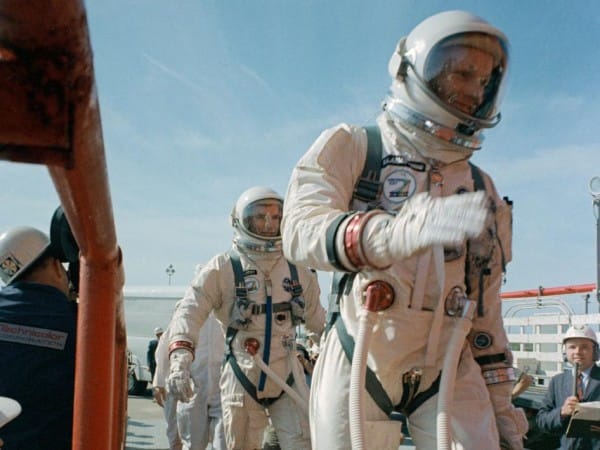Neil Armstrong Advocated for Greater US Presence in Space

(Photo Credit: NASA)

Neil Armstrong, the first human to walk on the moon, died of complications from heart surgery on Saturday. Armstrong began his path to the moon as a naval aviator serving in the Korean War. He later became a test pilot flying experimental aircraft. The astronaut was the first to successfully dock two craft in space in 1966.
Armstrong commanded Apollo 11, which left Cape Kennedy, Florida on July 16, 1969. Armstrong and fellow astronauts Michael Collins and Edwin 'Buzz' Aldrin came to orbit the moon on July 20. Armstrong manually landed the Eagle lunar model onto the surface and was the first to ever set foot on the moon.
Armstrong remained a long-time advocate for NASA programs later in life and a greater US presence in space. In 2010, the astronaut criticized President Obama's budget cuts to the space agency telling the Senate:
"If the leadership we have acquired through our investment is simply allowed to fade away, other nations will surely step in where we have faltered.”
NASA funding has steadily decreased since the end of the Cold War that pitted the United States against the Soviet Union for dominance in space. The president's 2013 budget calls for additional cuts to NASA including reductions in planetary science funding at the NASA Jet Propulsion Laboratory in California.
The JPL landed the rover, Curiosity, on the surface of Mars in August. NASA launched the $2.5 billion project to investigate whether conditions favorable for life have ever existed on the red planet. NASA hopes that Curiosity will allow scientists to travel to previously unreachable destinations on Mars.
Recently, California Senator Diane Feinstein told scientists on a visit to the laboratory:
"I can't say that JPL isn't going to feel the belt-tightening that's going on."
Feinstein said that she supported a proposal to return $100 million to the JPL budget, but that she did not expect progress on the deal until after this year's elections.
House Republican lawmakers proposed cuts to NASA above the White House’s reductions in a separate budget earlier this year. The Republican plan would cut NASA by $379 million. However, in February the Orlando Sentinel reported that the cuts would more likely reach $103 million because House Republicans utilized the president’s funding request for 2011 in their calculations. A spokesperson for the House Appropriations Committee told the paper that the Republican plan would end up cutting NASA by $103 million next year.
In July, legislators reached an agreement to continue to fund the federal government at current levels through March 2013. The congress will not take up a new budget before the 2012 elections.



